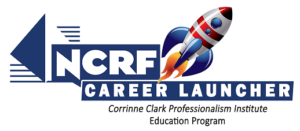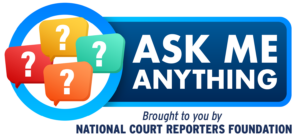
By Kay Moody
“Let me assert my firm belief that the only thing we have to fear is fear itself—nameless, unreasoning, unjustified terror which paralyzes needed efforts to advance.”
Franklin D. Roosevelt, inaugural address, 1933
Students repeatedly say they miss passing a test because of nerves or test anxiety. Almost all court reporters will tell you they experienced nervousness and shaking hands on tests, but they learned how to cope with test anxiety! There are proven relaxation techniques.
- EXERCISE:
- Release tension with what’s known as the “tense-relax method.” Make a fist; clench your fists as hard as you can. Keep them tightly clenched as long as possible. Then relax. For total relaxation, clench your fists, tighten your jaw, straighten your legs, and tense your abdomen all at once—right before a test. Then let go and take a deep breath.
- Do a mini-aerobic workout: 10 jumping jacks, sit-ups, touch your toes, run in place for five minutes, etc. If you have a treadmill, run on it until you’re breathing deeply.
- IMAGING: To relieve tension during a test, use guided imagery. Before taking a test, relax completely and take a quick fantasy trip. Close your eyes; relax your body; and imagine yourself in a beautiful, peaceful, pastoral setting. Create as much of the scene as you can. Use all your senses: soft music, a candle, perfume, aroma therapy.
- BE POSITIVE: Substitute negative thoughts and emotions with pleasant, positive images: eating a hot fudge sundae, taking a nap on the beach, seeing your best friend, hugging a loved one, having a romantic weekend, etc. Think about these positive images before and during a test. Put a small picture of your favorite fantasy in front of you and look at it during the test. Take the test with a smile on your face. Post a happy emoji on your machine.
- IMPROVE YOUR PHYSICAL WELL-BEING: There are a number of reasons you’re nervous.
- Too much caffeine: coffee, tea, soft drinks, chocolate.
- Skipping meals, particularly breakfast.
- Holding your breath. Breathe deeply while working on speed building dictation. When you feel nervous, inhale deeply.
- Poor circulation. Drop your head between your knees and stay in that position for a few minutes.
- Lack of endorphins. Laughter creates endorphins. Laugh hard. Laugh out loud or silently. Laugh until your sides ache. Laugh for a couple of minutes.
- Cold hands and cold feet. Put on shoes and socks. Cold feet produce shaking hands. Keep both your feet and hands warm.
- Not enough rest. Get a good night’s sleep before test day.
- USE VISUALIZING TECHNIQUES: Feel professional. Dress properly to perform better. If you feel like a professional, it will be easier to imagine that you are a professional court reporter.
- KEEP A TEST DIARY: Divide each page into two sections: “Strong Tests” and “Weak Tests.” Keep a journal of what you did prior to the strong tests and/or prior to the weak tests. Indicate the following:
- What did you eat or drink before the test?
- Did you have a cigarette right before a test?
- What time of day/night did you take the test? Was it at the beginning or end of the week?
- Did you warm up before the test? What material did you use? How fast was your warm-up material?
- Did you have a focal point during the test?
- Did you practice breathing? visualizing? exercising?
- What did you think about during the test?
- Were you rested? Did you get a good night’s sleep?
In conclusion, don’t let anxiety prevent you from passing a test. Identify why you’re nervous; apply specific relaxation techniques prior to and during a test; and adjust your surroundings to help you stay calm and focused.














